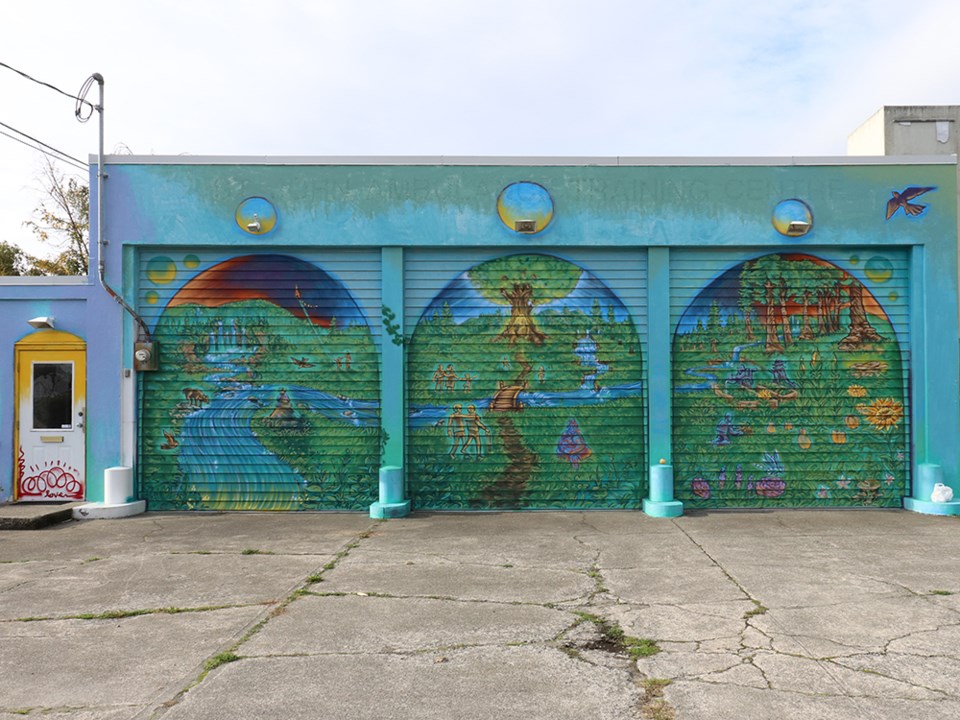Efforts are being made to ensure people in the Powell River area with substance use or alcohol problems can receive the help they require.
Steven Hall, public relations manager for Together We Can Drug and Alcohol Recovery and Education Society, said he monitors local message boards and has noticed a lot of people referring to the homelessness problem and addictions.
“One of the main things I realized is a lot of people are saying there are no solutions,” said Hall. “I don’t know if they realize that Miklat Recovery is here and that there are solutions in the community.”
Hall said the society operates McGuffie House. Primary care there involves abstinence-based treatment for 60 to 90 days. Hall said the hope is that residents there are going to return to the community, living sober, going back to their homes and reconnecting with their families.
Hall said for the duration of primary care, residents live in McGuffie House and start accessing the daily program right away.
“You start counselling immediately,” said Hall. “You start attending Alcoholics Anonymous or Narcotics Anonymous meetings.
“There’s a lot of success in Powell River,” said Hall. “In all the communities we operate in, Powell River has probably been the best community for collaboration between government, community service providers and things like that. The people who are making decisions are helping the community get healthy.”
Hall said men who are looking for recovery options can contact qathet Mental Health and Substance Use Services at 604.485.3354. He said an intake assessment is performed.
“They are going to try to keep people local where possible,” said Hall. “Right now, we have 12 beds at McGuffie House and they are all funded by Canadian Mental Health Association, the provincial government and Vancouver Coastal Health. So, people seeking recovery would call, get on the intake wait list, and depending on availability, they would be brought directly into Miklat.
“If necessary, they may need to go into detox first. So, that’s the starting point.”
After concluding the primary care, those seeking recovery can then move into a sober living house in the community. Hall said that is not funded by the government, but that sober living is the “secret sauce.”
“Some people are finishing treatment and then go back to an encampment, which doesn’t really breed success,” said Hall.
He said Together We Can has 425 beds now and about half of those are sober living establishments, which include food, utilities, laundry, WiFi and other basic needs.
“The point is for you to go back to school, or to volunteer, or work, and integrate back into the community while you have a safe, sober place to live,” said Hall. “It’s just a regular house and it’s not a facility.”
Hall said similar to the recovery house, sober living is abstinence-based.
“There’s no alcohol, or marijuana or any illicit substances,” said Hall. “There’s a house manager who lives on site. They make sure there’s accountability. It’s a successful system.”
Hall said if the individual in recovery can remain in their home community, it’s advantageous.
“You’re not isolated and not completely moved out of what you know,” said Hall.
While Together We Can is currently only serving men in the qathet region, Hall said they would like to open a female treatment centre in this community.
“Right now, we’re serving just men,” said Hall. “There’s a lot of women who need help, too, so one of our plans for 2026 is to expand our program for women. All our treatment for women is in Vancouver right now. There’s a huge wait list. There’s a huge gap for women in the rehab sector.”
Hall said Together We Can taking over Miklat Recovery has largely kept the recovery organization intact.
“What we did when we came in is we kept all the staff, and added some staff and some counsellors, but basically, everything is running the way it was,” said Hall. “We financially stabilized the organization, and since then, we’ve been able to almost finish the Arbutus building. We’re expanding it out more for local recovery.”
Hall said it’s important to let the community know that Together We Can is working on recovery in this community through Miklat.
“If we all come together and support this and drop some of the stigma, we’re going to see the community get better,” said Hall. “We’re listening. It’s important to listen to the people in the community as well as the people using the service. People are welcome to reach out to me if they have any questions or want to learn more.”
Hall’s telephone number is 778.900.5554.
Last year, Meta censored Canadian news from its feeds, so we built our own social platform: syrupsocial.com – a newsfeed powered by Canadian journalists. Join the Peak on Syrup for the latest news from the Sunshine Coast and beyond.



